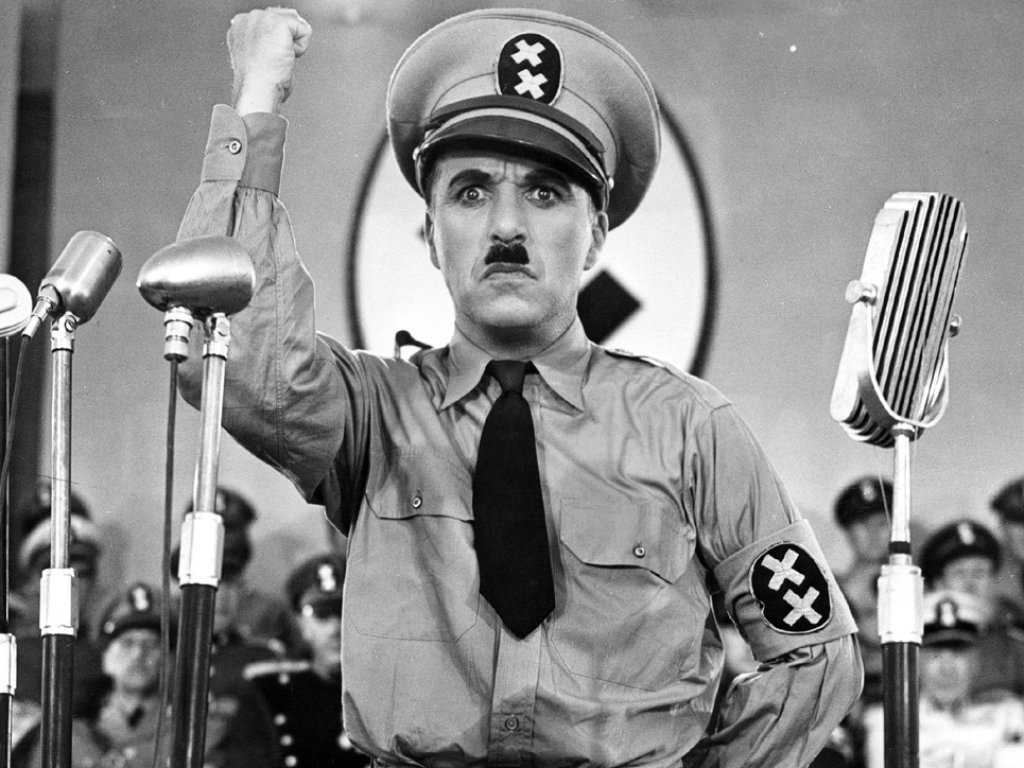In a move usually associated with Glenn Beck or Karl Rove, (ok, and FOX News in general), the always classy Hitler comparison was dropped. Three times. In three days. By three different Democrats.
According to HNN:
Moreover, as Michael C. Moynihan, writer for the Jewish magazine Tablet, points out: Burton and Lehman's (amongst others) usage of the "Big Lie" analogy is actually wrong.
 |
| You will all KNOCK THIS SHIT OFF! |
Within the space of a single week, California Democratic Party chief John Burton -- no stranger to strong language -- compared GOP campaign tactics to Joseph Goebbels's "big lie" at a state delegation breakfast on Monday; Pat Lehman, the president of the Kansas Democratic Labor Committee, also compared GOP voter fraud allegations with the "big lie" of the Nazis on Tuesday: "It's like Hitler said, if you're going to tell a lie, tell a big lie, and if you tell it often enough and say it in a loud enough voice, some people are going to believe you"; finally, on Wednesday, South Carolina Democratic chairman Dick Harpootlian joked that Republican governor Nikki Haley, who was conducting news conferences during the Democratic National Convention from a TV studio at the basement in the NASCAR Hall of Fame, was "down in the bunker a la Eva Braun."Comparing your political opponents to Hitler/things Hitlerly is always a bad move, even if those opponents are doing some pretty un-Democratic things. Besides squelching debate, dropping the H bomb is political discourse at it's dumbest and most hyperbolic, and unfortunately, as these examples show, members of both parties have and will drop a Hitler analogy to score political points.
Moreover, as Michael C. Moynihan, writer for the Jewish magazine Tablet, points out: Burton and Lehman's (amongst others) usage of the "Big Lie" analogy is actually wrong.
Back in January, Tennessee Rep. Steve Cohen decried Republican attacks on President Obama’s health-care legislation, saying his critics were advancing the “‘big lie’ just like Goebbels. You say it enough, you repeat the lie, you repeat the lie, and eventually, people believe it.” (Glenn Beck, annoyed that Cohen was competing in the illiterate historical comparison business, blasted the congressman—while invoking Mao, Hitler, and Stalin, and adding that “Nazi tactics are progressive tactics first.”)
The modest backlash against such rhetoric framed the debate as yet another example of the triumph of crudity in American political discourse. But while the squadron of fact-checkers parse the claims of the Obama and Romney campaigns, no one bothered to explore the origins of the “Big Lie” theory, which is regularly conjured on Twitter, blogs, talk radio, and cable news.
A little detective work reveals the Big Lie to be a rather big lie.
In fact, there is only a single reference to the “big lie” in Hitler’s collected writings and speeches—most contemporaneous usage capitalizes the phrase in order to underscore its Nazi ancestry—and it is this slight and unremarkable passage from Mein Kampf:
By branding [General Erich] Ludendorff as guilty for the loss of the World War they took the weapon of moral right from the one dangerous accuser who could have risen against the traitors to the fatherland. In this [the Jews] proceeded on the sound principle that the magnitude of a lie always contains a certain factor of credibility, since the great masses of the people in the very bottom of their hearts tend to be corrupted rather than consciously and purposely evil, and that, therefore, in view of the primitive simplicity of their minds they more easily fall a victim to a big lie than to a little one, since they themselves lie in little things, but would be ashamed of lies that were too big.Like most of the ponderous anti-Semitism found in Mein Kampf, this isn’t a terribly sophisticated or original point. It was a sinister cabal of Jews—those who controlled the German press and manipulated public opinion—that propagated a “big lie” about Germany’s humiliating defeat in World War I. In other words, it isn’t a recommended method of propaganda, but an accusation by the Nazis against German Jewry.
Nevertheless, providing historical context for the recent spate of “big lie” accusations, the Associated Press told readers that “Nazi leader Adolf Hitler believed the ‘big lie’ had a greater chance of being believed.” Well, not exactly. Hitler believed that the Jews believed the “big lie” had a greater chance of being believed.
Nor can the reference be attributed the to Nazi propaganda minister Joseph Goebbels, whose only reference to a “big lie” comes in a 1941 speech attacking Winston Churchill: “The English follow the principle that when one lies, one should lie big, and stick to it. They keep up their lies, even at the risk of looking ridiculous.” This is only at slight variance with the Hitler citation, as Goebbels’ ministry routinely argued that the English government and media were manipulated by Jewish power.
As historian Randall Bytwerk, an expert in German propaganda, observes in his brilliant excavation of the “big lie” myth, “only an incompetent propagandist warns his audience” that he will embark on a massive campaign of manipulation and lying. Bytwerk, who tracks the proliferation of the bogus Goebbels quote on his blog, explains that while it is “widely believe[d] that the Nazis brazenly proclaimed their duplicity, they in fact proclaimed the opposite” in their propaganda.


No comments:
Post a Comment